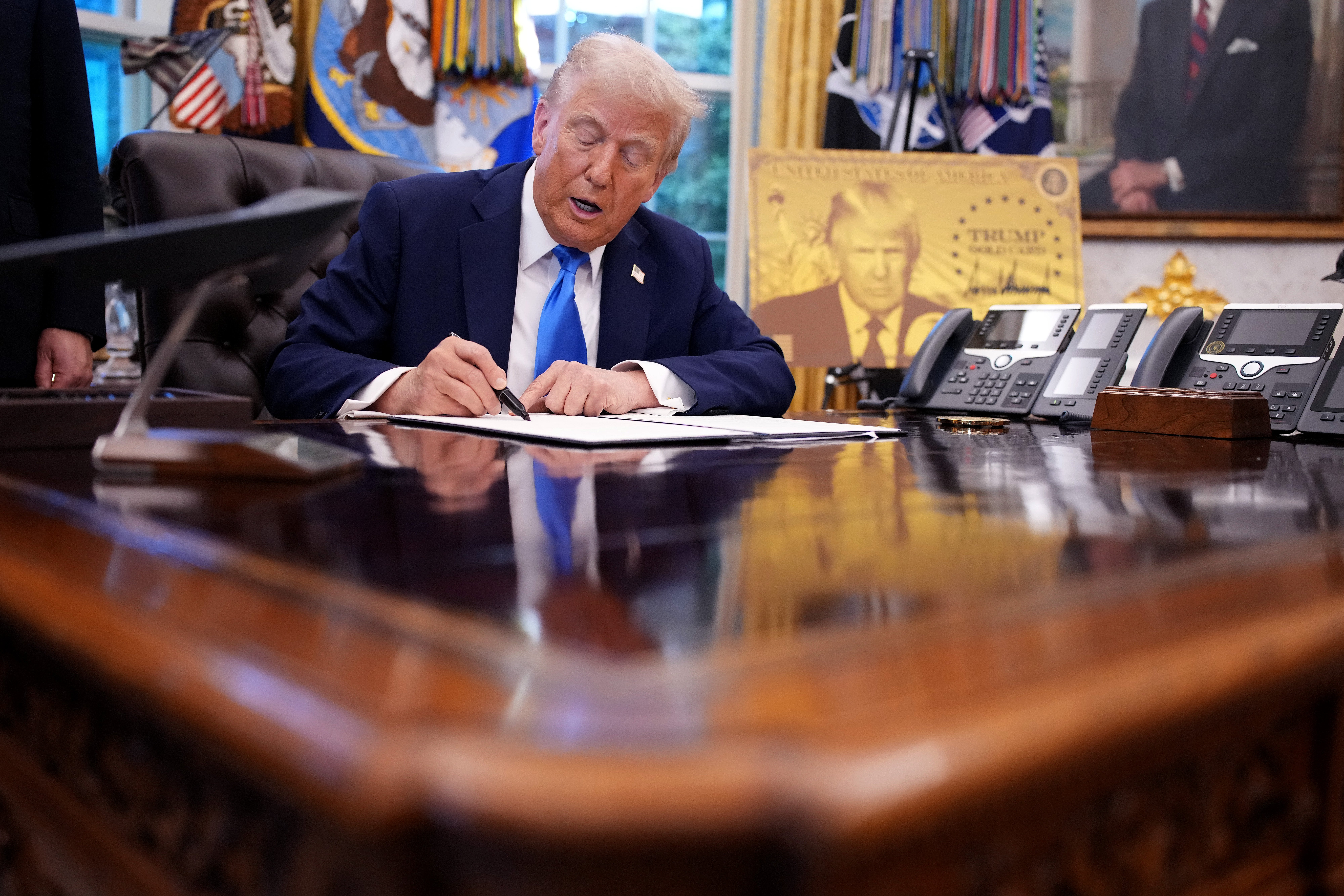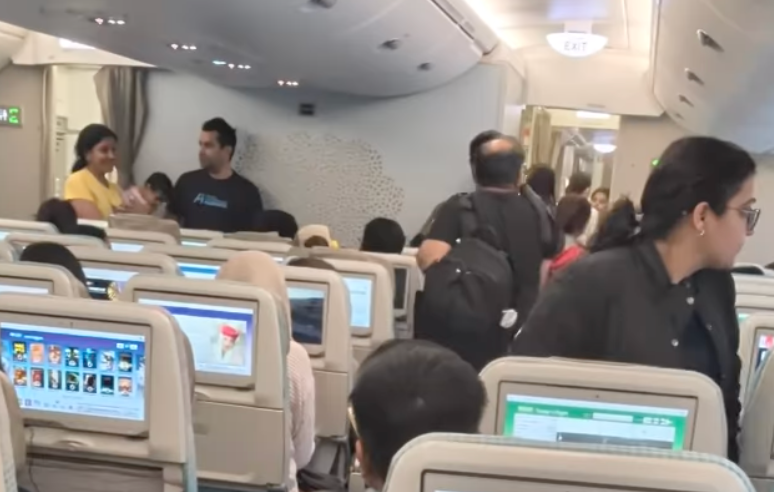Donald Trump’s $100,000 fee for new H-1B visas has sparked alarm in India’s tech industry and businesses, where the program has long been a lifeline for engineers and their families moving to the U.S..
The shock move, unveiled on Friday, has left companies scrambling to reassess hiring plans, lawyers warning of stalled career prospects, and thousands of skilled workers worried about their future in the U.S.
The 50-fold increase in the cost of skilled worker permits shocked employers, workers, and students in the U.S., India, and elsewhere, culminating in chaotic scenes at the San Francisco airport – a key gateway to the Silicon Valley and Bay Area’s elite universities.
By Saturday, the White House tried to reassure jittery companies that the fee does not apply to existing visa holders and that their H-1B employees traveling abroad will not be stranded, unable to re-enter the U.S. without coming up with $100,000. The new policy took effect at 12.01am Eastern Sunday.

For India’s $250bn IT sector, Mr Trump’s move is both a challenge and an opportunity. India is likely to be the hardest hit – in 2024 more than 70 per cent of H-1B visa holders were from India.
On the one hand, the steep visa fee could accelerate a trend already underway – U.S. firms expanding operations in India, where wages are lower and tech hubs now focus on innovation rather than just back-office work.
According to Reuters, Accenture’s proposal to build a campus in the southern Indian state of Andhra Pradesh, illustrates how global companies may respond by growing their Indian presence. It plans to eventually add about 12,000 jobs in the country, where it has its largest workforce.

But the disruption also comes at a cost. Thousands of Indian engineers and students who saw the H-1B as a pathway to U.S. careers and eventually permanent residency, now face fresh uncertainty. The new levy could block access for those without deep-pocketed employers, tilting the field in favour of Big Tech while squeezing startups that rely on affordable foreign talent.
Immigration lawyers warn this risks shrinking opportunities for young Indian professionals who once considered the U.S. the ultimate destination.
“I have had several conversations with corporate clients who say this new fee is simply unworkable in the U.S., and it’s time for us to start looking for other countries where we can have highly skilled talent,” said Chris Thomas, an attorney at Colorado-based law firm Holland & Hart.
"And these are large companies, some of them household names, Fortune 100 type companies, that are saying, we just simply cannot continue."
About 141,000 new H-1B applications were approved in 2024, according to Pew Research, well above the 65,000 annual cap because universities and other groups are exempt.
While the visa once cost firms only a few thousand dollars, the new $100,000 fee makes hiring abroad – especially in India, now a hub for tech innovation – far cheaper.

“We probably have to reduce the number of H-1B visa workers we can hire,” said Sam Liang, CEO of Otter.ai, adding some companies may now outsource more roles overseas.
The H-1B visa, introduced in 1990, is part of a long U.S. tradition of using immigration programs to fill labour gaps – from Mexican farm workers during World War II to Spanish sheepherders in the 1950s and Filipino nurses in the 1990s. Today, employers can also hire foreign workers through the H-2A program for farm jobs and H-2B for other seasonal roles.
H-1B visas, mostly used by tech firms facing skill shortages, went 65 per cent to computer jobs in 2023. Open to applicants with at least a bachelor’s degree, the visas are temporary, lasting up to six years and can be extended if linked to a green card application.
At one point, top tech CEOs, including Alphabet chief executive Sundar Pichai, Microsoft CEO Satya Nadella and Tesla and SpaceX head Elon Musk, were H-1B visa holders.
In 2024, Mr Musk said on his platform X: “The reason I’m in America along with so many critical people who built SpaceX, Tesla and hundreds of other companies that made America strong is because of H-1B.”
Analysts warn that the curbs could also ultimately choke innovation. More than half of U.S. unicorns were founded by immigrants, according to the National Foundation for American Policy.
“If not, we will see a pullback from the smartest people around the world,” said Bilal Zuberi of Red Glass Ventures, who began his career in the US on an H-1B.
The Indian government has responded by hitting back at Mr Trump’s decision, saying it would have “humanitarian consequences”.
India’s external affairs ministry over the weekend said the fee would have humanitarian consequences “by way of the disruption caused for families”. India “hopes that these disruptions can be addressed suitably by the U.S. authorities and emphasised that the exchange of skilled workers has “contributed enormously” to both nations, it said.
Nasscom, India’s IT trade body, said the decision to hike fees would “potentially have ripple effects on America’s innovation ecosystem” and create “considerable uncertainty for businesses, professionals, and students across the world”.
The policy change came into effect as Indian foreign minister S Jaishankar met with U.S. secretary of state Marco Rubio in New York on Monday. It was the first such high-level bilateral meeting between the two after the U.S. hit India with a double tariff of 50 per cent, sparking trade tensions between the two allies.
But details of their talks on new visa levies were absent. Mr Rubio reiterated that “India is a relationship of critical importance to the U.S. and expressed his appreciation for the Indian government’s continued engagement on a number of issues including trade, defence, energy, pharmaceuticals, critical minerals, and other items related to the bilateral relationship".
Additional reporting by agencies







